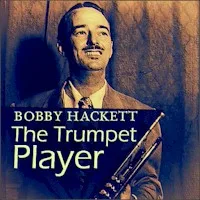Styles: Vocal, Swing, Cabaret
Year: 2000
File: MP3@320K/s
Time: 61:09
Size: 143,5 MB
Art: Front
(3:30) 1. Intro
(2:42) 2. Back Home Again In Indiana
(0:15) 3. Announcement
(2:21) 4. When I Fall In Love
(4:35) 5. You Lucky To Me
(0:12) 6. Announcement
(2:47) 7. A Love Like This
(3:15) 8. Moon River
(0:15) 9. Announcement
(4:16) 10. Come Sunday
(3:04) 11. I'm Coming Virginia
(2:34) 12. A Woman Intuition
(4:18) 13. Sugar
(0:19) 14. Announcement
(2:07) 15. Manhattan
(3:24) 16. Someone To Watch Over Mee
(2:01) 17. Street Of Dreams
(2:02) 18. Some Sunny Day
(2:58) 19. Chicken Today And Feathers
(3:52) 20. A Ghost Of A Chance
(1:44) 21. Any Time, Any Day, Anywhere
(1:17) 22. 'S Wonderful
(1:12) 23. Somebody Loves Me
(1:26) 24. Soft Lights And Sweet Music
(2:20) 25. The Man I Love
(2:11) 26. Any Time Any Day Anywhere
At Carnegie Hall
Year: 2000
File: MP3@320K/s
Time: 61:09
Size: 143,5 MB
Art: Front
(3:30) 1. Intro
(2:42) 2. Back Home Again In Indiana
(0:15) 3. Announcement
(2:21) 4. When I Fall In Love
(4:35) 5. You Lucky To Me
(0:12) 6. Announcement
(2:47) 7. A Love Like This
(3:15) 8. Moon River
(0:15) 9. Announcement
(4:16) 10. Come Sunday
(3:04) 11. I'm Coming Virginia
(2:34) 12. A Woman Intuition
(4:18) 13. Sugar
(0:19) 14. Announcement
(2:07) 15. Manhattan
(3:24) 16. Someone To Watch Over Mee
(2:01) 17. Street Of Dreams
(2:02) 18. Some Sunny Day
(2:58) 19. Chicken Today And Feathers
(3:52) 20. A Ghost Of A Chance
(1:44) 21. Any Time, Any Day, Anywhere
(1:17) 22. 'S Wonderful
(1:12) 23. Somebody Loves Me
(1:26) 24. Soft Lights And Sweet Music
(2:20) 25. The Man I Love
(2:11) 26. Any Time Any Day Anywhere
Lee Wiley was a superior singer whose style feel between swing and cabaret. She gave straightforward interpretations of lyrics yet also had a strong sense of swing. Discouraged by the music business, Wiley retired in 1958 when she was still in her prime. She made a brief return during 1971-72 when she recorded a final album and performed at the first Newport in New York Jazz Festival. The latter concert has been released for the initial time on this Audiophile CD and is Wiley's final recording. Accompanied by cornetist Bobby Hackett, pianist Teddy Wilson, guitarist Bucky Pizzarelli, bassist George Duvivier and drummer Don Lamond, Lee Wiley sounds in surprisingly good form. Although her voice had deepened a little, she is quite recognizable and had not declined at all. Before a loving crowd (that sounds quite delighted to get the rare chance to see her), Wiley sings 11 songs. Best are "Indiana," "You're Lucky to Me," an emotional "Come Sunday" and "Sugar." Although she forgets the words at one point on "Manhattan" (a surprise request from George Wein), Lee Wiley does quite well and exits on top. The remainder of this CD is comprised of ten songs recorded at a rehearsal in 1952 with Wein himself on piano, bassist John Field and drummer Marquis Foster. The trumpeter is listed as Johnny Windhurst but I would opt for Bobby Hackett. Although quite informal (and some of the renditions are under two minutes), this rehearsal is an important addition to the relatively slim discography of the charming Lee Wiley. ~ Scott Yanow https://www.allmusic.com/album/the-carnegie-hall-concert-mw0000913043
Personnel: # 1-16: Lee Wiley - vocal; Bobby Hackett - cornet; Teddy Wilson - piano; Bucky Pizzarelli - guitar; George Duvivier - bass; Don Lamond - drums
# 17-26: Lee Wiley - vocal ; Johnny windhurst - trumpet ; George Wein - piano ; John Field - bass; Marquis Foster - drums
Personnel: # 1-16: Lee Wiley - vocal; Bobby Hackett - cornet; Teddy Wilson - piano; Bucky Pizzarelli - guitar; George Duvivier - bass; Don Lamond - drums
# 17-26: Lee Wiley - vocal ; Johnny windhurst - trumpet ; George Wein - piano ; John Field - bass; Marquis Foster - drums
At Carnegie Hall
















